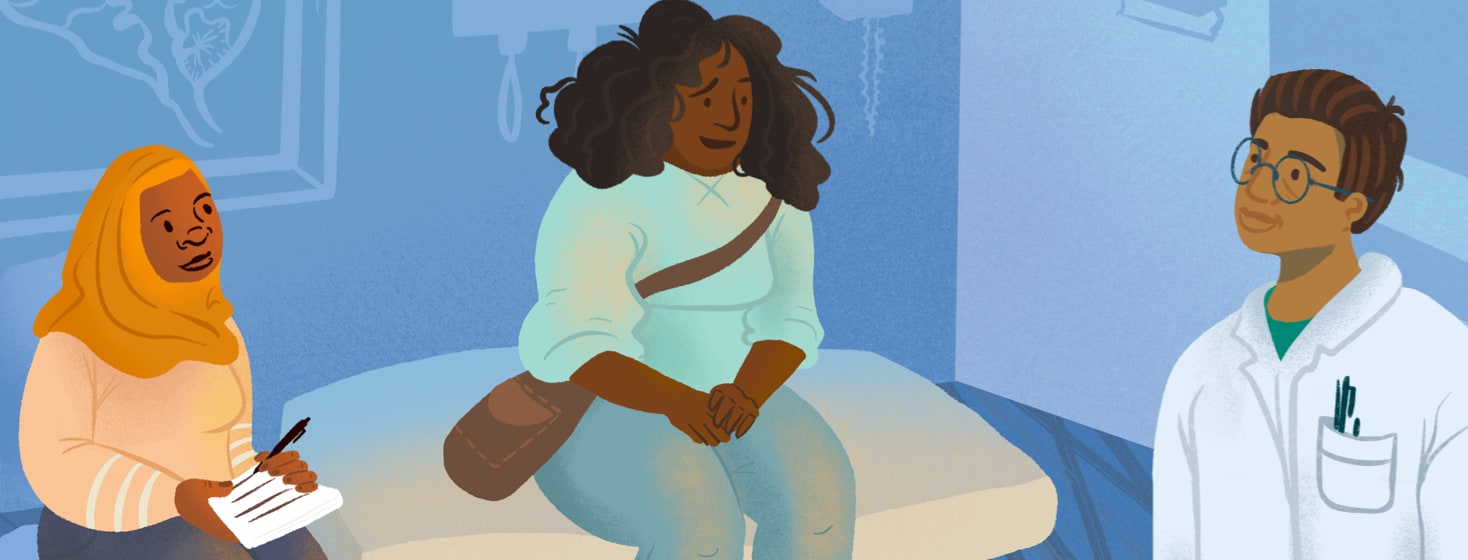How I Handle My Doctors Appointments
Any newly diagnosed patients who start to see a nephrologist get overwhelmed or need that extra reassurance. As someone who has been seeing doctors since 2011, I have had some doctors be my biggest cheerleaders. Still, sometimes, I've had significant issues leaving an appointment that made me feel uncomfortable and emotional. At the beginning of my journey, I collected great tips to help myself and others with chronic kidney disease not be a passenger in their health journey.
Featured Forum
View all responsesPreparing for your doctor's appointments
No matter what type of doctor you are seeing, it is important to prepare for the appointment. Take a list of concerns with you. I use my notepad on my phone for ease to list any ongoing concerns and keep a list of questions I have. What helps me is putting it in a number list of what concerns are a priority and can be raised now and noted down but can be addressed at the next appointment. If you don't have a phone with this capability, carrying a pen and notepad is also an option, as brain fog can make you forget your concerns when you are at your appointment.
Remember also to bring a list of your medications. As you may see many different doctors, it's always good to have a list of your medications, any past medications, and medications you are allergic to.
Bring someone with you
Considering bringing someone with you to doctor's appointments: Bringing a support system with you always helps, especially at the start of your CKD journey. I've had my mum come, and when I knew this was a long-life condition for me, unless it was a more extensive appointment, I have tended to handle it on my own. Still, of course, everyone takes and handles things differently. If you have a solid support system, it is good to reach out to them to help you when you're overwhelmed. You can also use an extra pair of ears to ensure you don't miss anything.
Remember to notify the doctor of any changes. If your next visit is your follow-up appointment, inform your doctor of any changes, no matter how small or even if you think it doesn't relate. I have been in situations where it didn't relate to my CKD. Still, it turned out to be a side effect of one of my medications, and it was changed. Any slight change can impact your CKD.
Establishing a good rapport
It is so essential to create a rapport with your doctor. In some cases, you do get doctors who see you as just another patient, and sometimes, as unfortunate as it is, you can get seen as just a paycheck. Over the years, I've had doctors who just took 60 seconds to see me, and then I'm out. Now, I have an excellent doctor I've known for years, and she's one I highly respect.
This or That
Are you satisfied with your current CKD treatment plan?
When your doctor comes into the room, you can greet them politely by calling their name and making eye contact with the doctor to show you are listening and interested. My visit time is short, so I have the list I spoke of earlier, which will help you stay on point, ask your questions, and raise your concerns before the end of your appointment. It's good to remember that your doctor is also a human, just like you are. If you treat your doctor respectfully, they will treat you the same.

Join the conversation